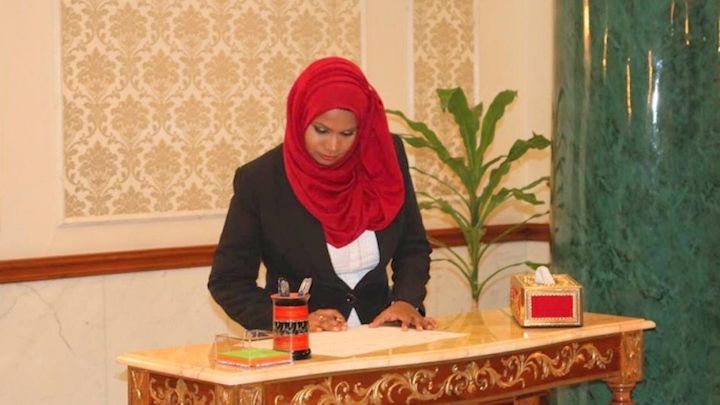Judicial watchdog backs supreme court’s sacking of judge
The Judicial Service Commission decided at a meeting on Monday that it does not have to take further action since the constitution declares the supreme court to be “the final authority” on all matters dealt with by a court of law.

25 Feb 2017, 09:00
The judicial watchdog has backed an unprecedented supreme court decision to sack a civil court judge after she ruled against the government in a long-running resort lease dispute.
The Judicial Service Commission decided at a meeting on Monday that it does not have to take further action since the constitution declares the supreme court to be “the final authority” on all matters dealt with by a court of law.
The JSC spokesman said the decision was put to a vote but declined to give further details.
In an order issued close to midnight on February 16, the apex court had declared that Judge Mariyam Waheed has “lost the legitimacy, legal capacity, and authority” to remain on the bench after a judgment she delivered ordering the government to sign a resort lease agreement was deemed contrary to a previous supreme court ruling.
Become a member
Get full access to our archive and personalise your experience.
Already a member?
Discussion
No comments yet. Be the first to share your thoughts!
No comments yet. Be the first to join the conversation!
Join the Conversation
Sign in to share your thoughts under an alias and take part in the discussion. Independent journalism thrives on open, respectful debate — your voice matters.




